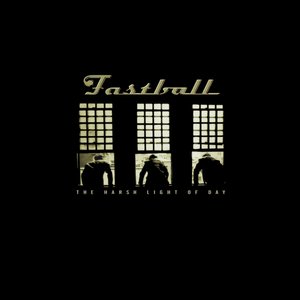Published on Nov 15, 2000
Once upon a time there was a band with not one, but two talented
singer/songwriters, who alternated on lead vocals.
One played guitar; the other, bass. The guitar player had a
throaty, bluesy voice, and his songs ranged from moody ballads to
furiously energetic rock songs. The bass player had a buoyant sense
of melody and a penchant for romantic pop songs, yet would also
rock out when the mood struck him.
Different as they were, their styles complemented one another
perfectly, like two sides of the same coin. These divergent
approaches kept the group’s sound constantly evolving, peopling
their exhilarating range of song-styles with quirky characters and
creative sonic embellishments. The lead pair were aided and abetted
throughout by the group’s mop-topped drummer, an unassuming but
remarkably steady and versatile backstop.
Well, actually… once upon the time there were two bands. One
came from Liverpool and changed the musical world forever with
albums like
Revolver,
Sgt. Pepper’s and “The White Album.” They were called the
Beatles.
The other came from Austin, Texas, and just turned out the best
album of their career. They’re called Fastball. (And right about
now, they probably hate me. Just give it a chance,
guys…)
Let’s be clear right up front — Miles Zuniga (guitar/vocals) is
not John Lennon, Tony Scalzo (bass/vocals) is not Paul McCartney,
and Joey Shuffield (drums) only resembles Ringo when his face is in
the shadows. What Fastball is — much like the Jayhawks — is a
band that fearlessly mixes the old with the new, creating music
that’s both obviously influenced and determinedly original. On
The Harsh Light Of Day, Fastball pays frequent homage to
middle-period Beatles without ever sacrificing their musical
identity.
The album kicks off with a fantastic one-two punch. Zuniga’s
“This Is Not My Life” harnesses the rage of the rejected to a
heavy-duty electric guitar riff that’s half muscle and half melody.
He hammers his point home over and over, alternating his approaches
between full-out electric barrages, midrange rhythm, and a pair of
tinny, mono, volume-on-two interludes that would make George Martin
chuckle. The closing sing-along rant is eventually drowned out by
feedback that cuts right into the next track, veering 180 degrees
into the hyperactive dueling-acoustic-and-electric-piano melodies
of “You’re An Ocean.” The first single from the album, “Ocean” is
powered by its unabashedly silly, yet deliriously well-rhymed
chorus.
Scalzo and Zuniga trade tracks the rest of the way to similarly
entertaining effect. Scalzo’s exotic yet philosophical “Love Is
Expensive And Free,” featuring a full orchestra plus mariachi horns
and percussion, cuts directly into Zuniga’s silky, creepy
“Vampires,” which could pass for a sequel to the Blue Oyster Cult
classic “(Don’t Fear) The Reaper.” Later on, Scalzo’s languorous,
acerbic “Funny How It Fades Away” contrasts string-accented verses
with hammering choruses, then cuts straight into Zuniga’s “Don’t
Give Up On Me,” a parade of sturdy electric licks and urgent
vocals.
In the middle, Zuniga and Scalzo each take two in a row.
Scalzo’s “Wind Me Up” is an insistently catchy power-pop track
heavily spiced with symphonic flourishes. The bizarre little coda
that follows it features trains rolling by as a sultry-voiced woman
speaks incomprehensible French. Before Billy Shears or Mr. Kite can
arrive to translate for us, though, we cut to “Morning Star,” a
guitar-driven blast of sarcasm that proves Scalzo isn’t all
sweetness and light.
Zuniga follows with one of my favorite cuts of Y2K. “Time” is a
rip-it-up piece of rock’n’roll that grafts all manner of edgy sonic
twists and turns onto a killer electric hook that’s topped off by
Zuniga’s best belting “Twist And Shout” vocals. From those
thundering heights, Zuniga slides smoothly down into the ironically
light “Dark Street,” all layered harmonies and upbeat chords.
Finishing things up strongly, the album closer “Whatever Gets
You On” opens contemporary with acoustic guitar over electronic
percussion, before the chorus throws the song into an affectionate
pastiche of “White Album” Hammond organ, descending “aahhh-uuhhh”
harmony vocals, and “weeping,” Harrison-y guitar licks. It’s about
now that you remember the cinematic,
run-the-songs-together-into-a-single-diverse-and-dynamic-soundscape
strategy is descended directly from
Sgt. Pepper’s.
Even with all the intriguing parallels, I might still have
exercised compassion for Fastball and left the Beatles thing alone,
if not for one little nugget hidden away in this disc’s liner
notes. The album features terrific keyboard work throughout by
sidemen Bennett Salvay and Kim Bullard. Still, for one track at
least, our boys went right to the source. Thus, we find that
“You’re An Ocean” features piano by none other than… Billy
Preston.
I bet he felt right at home.
